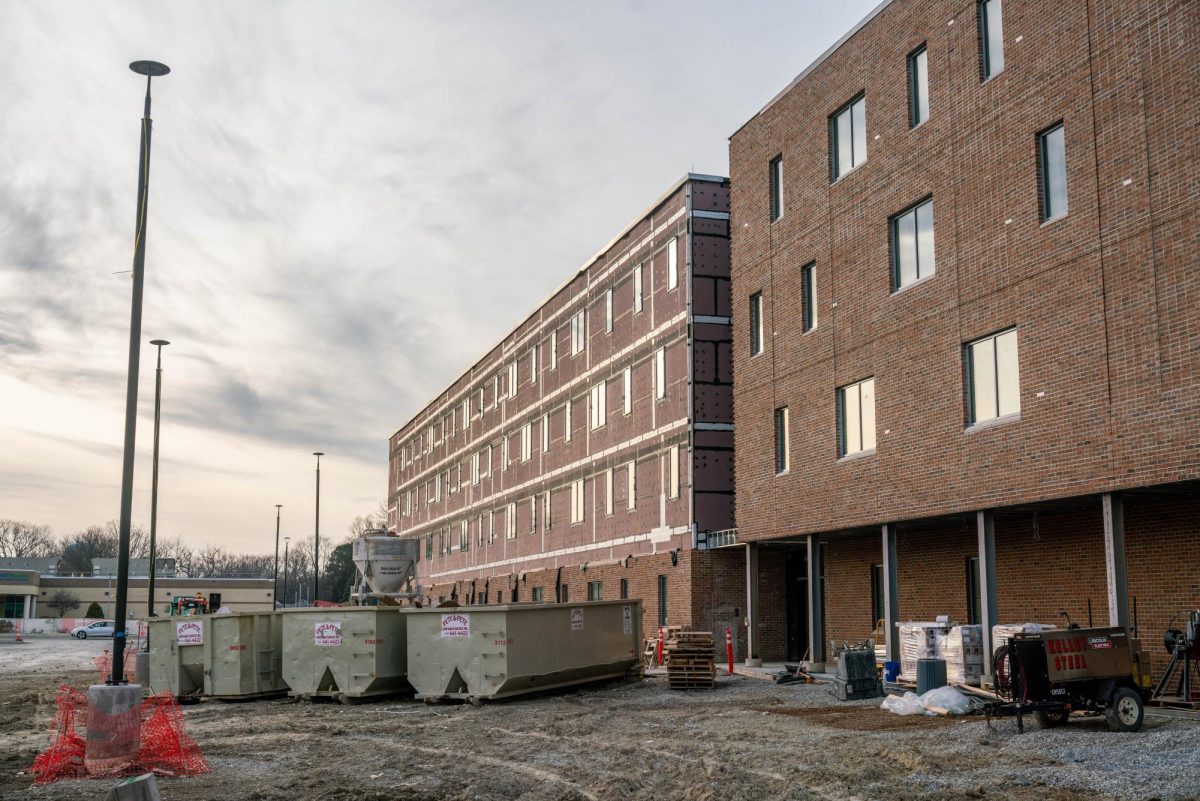As Winter Term approaches, students are gearing up to pursue month-long projects spanning multiple disciplines. Previously, many students have engaged in projects while living on campus, at home, or in other locations. For the 2025 Winter Term application cycle, however, Oberlin’s application now requires students to provide a rationale for pursuing off-campus projects.
This year, question four of Oberlin’s Winter Term application reads: “Most individual projects are well suited for on-campus completion in Oberlin. For all individual projects taking place off campus, please share your reasons for choosing an off-campus location. Are you pursuing site-specific work? Please describe why you are choosing not to pursue this project on campus and explain how the location of your work relates to your learning goals.”
Deanna Bergdorf, director of Winter Term and global learning and interim director of Study Away and International Programs, pointed to the level of reflection and intent involved in applying for an individual project.
“Students who are proposing individual projects are asked to consider their selected project location and describe how this work site can support the learning goals that they have designed for their project,” Bergdorf wrote in an email to the Review.
Bergdorf also said that Oberlin’s updated Winter Term application aligns with the broader goals in the faculty-endorsed One Oberlin report, “a project of institutional self-examination and strategic reimagining” which was created in 2018 by the Academic and Administrative Program Review to remove the institution’s structural deficit and improve its financial efficiency.
Section VIII of the report, under the AAPR Recommendations for Academic Reorganization, calls for “creating a more robust Winter Term.” This includes cultivating a larger on-campus presence by 600 to 800 students, expanding on-campus programming, and increasing faculty engagement. According to the recommendations, the increased emphasis on on-campus Winter Term projects “would help Oberlin students develop a more positive sense of community,” as well as “better serve institutional learning goals [and] support efforts to help students prepare for their careers.”
While Oberlin students undoubtedly have much to gain from taking advantage of on-campus resources for their projects, some expressed the importance of off-campus projects. Jesse Herdman, a College fourth-year Studio Art major and Creative Technologies and Music minor, worked with an effects pedal and Eurorack module sound engineer based in Brooklyn last year.
“It was very invaluable and I couldn’t have done it here [in Oberlin],” Herdman said. “It was such a niche thing that doesn’t exist on this campus, and I’m sure that’s the case for a lot of other people on this campus.”
Annabella Carbone, a third year Psychology major, expressed similar sentiments on the advantages of off-campus Winter Term projects. Carbone, who is from Philadelphia, worked at an elementary school in Brooklyn for her first Winter Term and at a yarn store back home for her second. She valued both experiences of being somewhere new and getting involved in her community.
“There are elementary schools in Oberlin, but I could live somewhere different and think about future careers, which was what drew me to it,” Carbone said. “Last year, … I appreciated getting to learn how [a small business] operates within the context of my community. In terms of the new application, I think providing a rationale is a fair way to do it. What’s unique about Winter Term is allowing students to explore multiple future career avenues, which off campus can sometimes only offer.”
Many Oberlin students, on the other hand, feel compelled to remain on campus to situate their project within the Oberlin community. Piers Shirk, a second-year prospective Biology major, noted the importance that his upcoming project at Kendal at Oberlin has for his future career plans and for strengthening his ties to the Oberlin community. This January, he intends to assist residents and provide companionship and other care.
Shirk plans on applying to medical school in the future and feels that the project will aid him in these aspirations.
“I’m excited to connect with retired nurses and doctors, as well as learn the day-to-day care operations at Kendal,” he said.
Despite Oberlin’s prioritization of on-campus projects, the College will continue to sponsor opportunities and provide resources for micro-internships and international projects that aren’t directly tied to Oberlin. Musical Exchange in Uruguay, for example, offers string and wind players the chance to travel to Punta del Diablo for “a period of intensive musical study and performance.” Similar programs also include the Spanish Immersion Program in Guadalajara and Music in London Now, although a program fee is required. Through the Career Exploration and Development Office, students can also apply for off-campus micro internships coordinated by the office that offer career experience in a range of fields.








